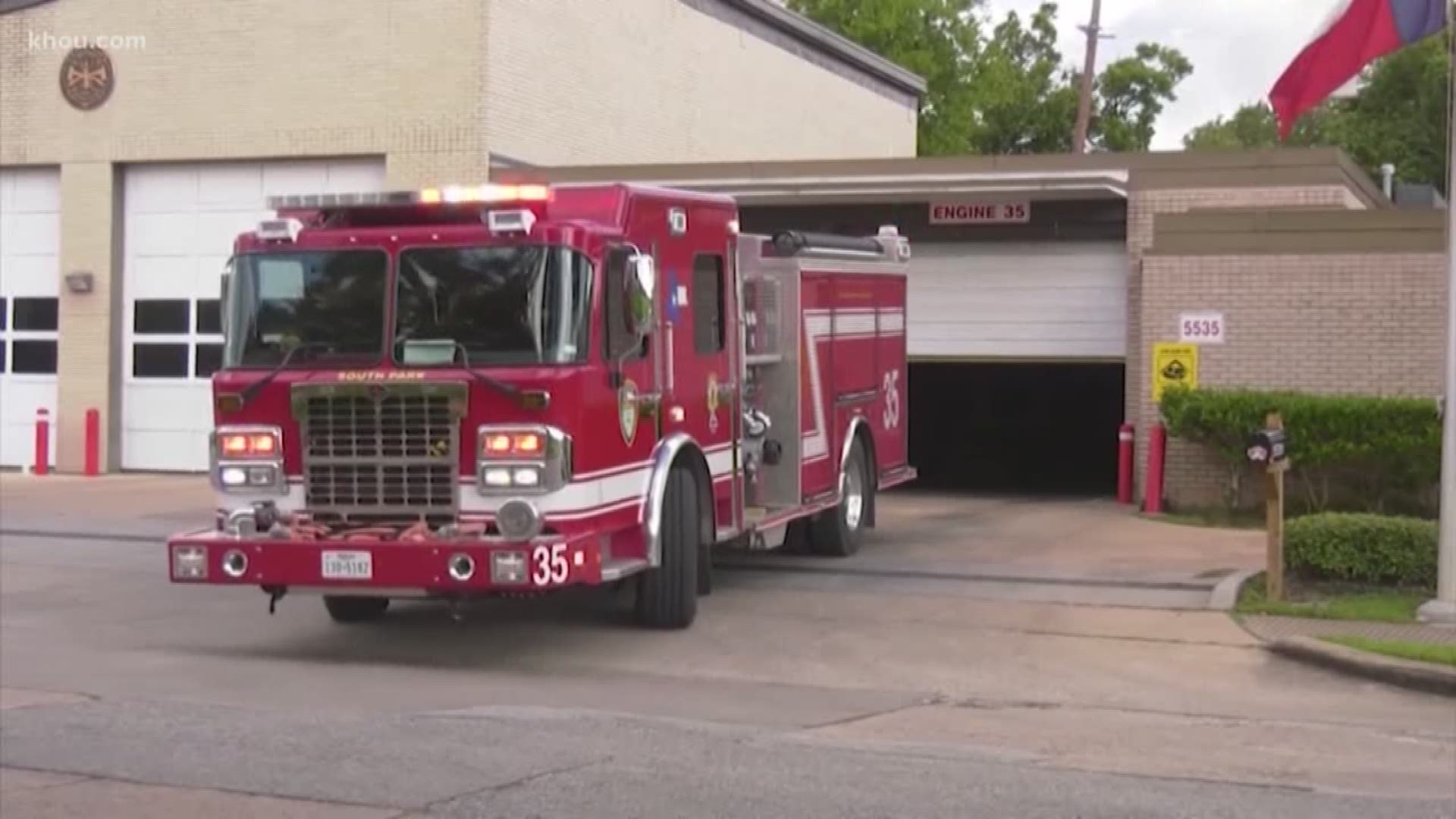HOUSTON — Houston Fire Chief Sam Pena said as of Saturday afternoon, there were 83 firefighters in quarantine because of coronavirus exposure. One firefighter has tested positive for the virus, and another 14 have been tested with no results yet.
The department is now changing its procedures to better protect firefighters. The chief said he needs the public’s help.
“When you call 9-1-1, what we ask is that you let us know if anyone in the household is having flu-like symptoms, or definitely a cough, a fever or shortness of breath," Chief Pena said.
He said firefighters will be wearing more personal protective equipment: gloves, protective goggles and masks when responding to any medical call.
"And if they're within 6 feet of a patient that's confirmed or suspected of having coronavirus, then they're going to wear the gloves, goggles, the mask plus the disposable gown," Chief Pena said.
The chief said as a department, they are assuming every patient they meet is infected.
Staffing is the critical issue for the fire department.
“If our staffing levels drop, then at some point, it may be affecting our response times, because it's going to affect our ability to staff our units."
The chief said his department is well stocked with the personal protection equipment, which he said will also be available to the Houston Police Department.
Coronavirus symptoms
The symptoms of coronavirus can be similar to the flu or a bad cold. Symptoms include a fever, cough and shortness of breath, according to the Centers for Disease Control. Some patients also have nausea, body aches, headaches and stomach issues. Losing your sense of taste and/or smell can also be an early warning sign.
Most healthy people will have mild symptoms. A study of more than 72,000 patients by the Centers for Disease Control in China showed 80 percent of the cases there were mild.
But infections can cause pneumonia, severe acute respiratory syndrome, kidney failure and even death, according to the World Health Organization. Older people with underlying health conditions are most at risk for becoming seriously ill. However, U.S. experts are seeing a significant number of younger people being hospitalized, including some in ICU.
The CDC believes symptoms may appear anywhere from two to 14 days after being exposed.
Human coronaviruses are usually spread through...
- The air by coughing or sneezing
- Close personal contact, such as touching or shaking hands
- Touching an object or surface with the virus on it, then touching your mouth, nose or eyes before washing your hands.
Help stop the spread of coronavirus
- Stay home when you are sick.
- Eat and sleep separately from your family members
- Use different utensils and dishes
- Cover your cough or sneeze with your arm, not your hand.
- If you use a tissue, throw it in the trash.
- Follow social distancing
Lower your risk
- Wash your hands often with soap and water for at least 20 seconds. If soap and water are not available, use an alcohol-based hand sanitizer.
- Avoid touching your eyes, nose, and mouth with unwashed hands.
- Avoid close contact with people who are sick.
- Clean and disinfect frequently touched objects and surfaces.
- If you are 60 or over and have an underlying health condition such as cardiovascular disease, diabetes or respiratory illnesses like asthma or COPD, the World Health Organization advises you to try to avoid crowds or places where you might interact with people who are sick.
Get complete coverage of the coronavirus by texting 'FACTS' to 713-526-1111.

